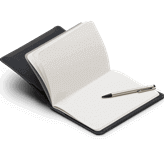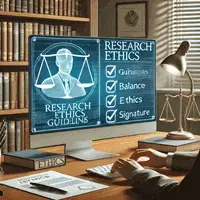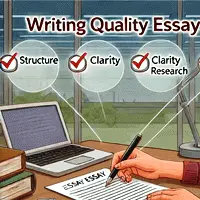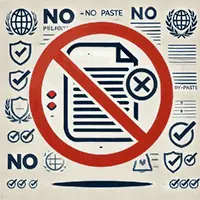 In academic research and scholarly endeavors, a dissertation stands as a pinnacle of achievement, a culmination of years of painstaking research, critical analysis, and intellectual exploration. It is a document that not only reflects the depth of a researcher's knowledge but also their ability to contribute to their field of study. In this pursuit of academic excellence, one crucial aspect that goes unnoticed but holds immense significance is understanding how to edit in-text citations in a dissertation. Citations in a dissertation are more than just a formality, as they are a testament to the scholarly integrity of the research, demonstrating the researcher's commitment to acknowledging the sources that have contributed to the development of their ideas. However, writing impeccable in-text citations can be a complex and time-consuming process. The meticulous adherence to various citation styles, such as APA, MLA, Chicago, or Harvard, demands unwavering attention to detail. Any oversight or inconsistency in citations can detract from the overall quality of the dissertation and even lead to issues of plagiarism. This is where our Research Writing Help.com comes into play. We understand the significance of flawless citations in your dissertation and are committed to assisting you in perfecting this vital aspect of your academic work. Our team of experts comprises experienced academicians and professional editors who specialize in the intricacies of various citation styles, ensuring that your in-text citations conform to the highest standards of accuracy and consistency. With our assistance, you can rest assured that your dissertation's citations will not only be error-free but also enhance the credibility and readability of your research. Our meticulous review process not only corrects citation errors but also ensures that the citations flow seamlessly within your dissertation, seamlessly integrating the thoughts and ideas from your sources into your work. Citations are the threads that weave together the fabric of your research, connecting your ideas to the broader academic conversation. We can help to review citations in a dissertation project, as we have the best experts in the field, and are here to support you on your journey toward academic excellence.
In academic research and scholarly endeavors, a dissertation stands as a pinnacle of achievement, a culmination of years of painstaking research, critical analysis, and intellectual exploration. It is a document that not only reflects the depth of a researcher's knowledge but also their ability to contribute to their field of study. In this pursuit of academic excellence, one crucial aspect that goes unnoticed but holds immense significance is understanding how to edit in-text citations in a dissertation. Citations in a dissertation are more than just a formality, as they are a testament to the scholarly integrity of the research, demonstrating the researcher's commitment to acknowledging the sources that have contributed to the development of their ideas. However, writing impeccable in-text citations can be a complex and time-consuming process. The meticulous adherence to various citation styles, such as APA, MLA, Chicago, or Harvard, demands unwavering attention to detail. Any oversight or inconsistency in citations can detract from the overall quality of the dissertation and even lead to issues of plagiarism. This is where our Research Writing Help.com comes into play. We understand the significance of flawless citations in your dissertation and are committed to assisting you in perfecting this vital aspect of your academic work. Our team of experts comprises experienced academicians and professional editors who specialize in the intricacies of various citation styles, ensuring that your in-text citations conform to the highest standards of accuracy and consistency. With our assistance, you can rest assured that your dissertation's citations will not only be error-free but also enhance the credibility and readability of your research. Our meticulous review process not only corrects citation errors but also ensures that the citations flow seamlessly within your dissertation, seamlessly integrating the thoughts and ideas from your sources into your work. Citations are the threads that weave together the fabric of your research, connecting your ideas to the broader academic conversation. We can help to review citations in a dissertation project, as we have the best experts in the field, and are here to support you on your journey toward academic excellence.
Why do students need expert editing for their dissertation papers' citations?
Students need expert editing for their dissertation citations, as they are a fundamental aspect of academic writing that demonstrates a student's ability to engage with existing research and give credit to the sources of information. Accurate and consistent citations are essential to maintain academic integrity and avoid plagiarism, which can have severe consequences for students, including academic penalties and damage to their reputation. Professional editing ensures that citations adhere to the specific style guide or formatting requirements mandated by the academic institution or journal. Different disciplines may use different citation styles (e.g., APA, MLA, Chicago), and even minor errors or inconsistencies can result in a lower grade or rejection of the dissertation. Furthermore, expert editors can help students improve the overall clarity and coherence of their citations. This includes proper formatting, correct punctuation, and appropriate placement of citations within the text. Ensuring that citations are seamlessly integrated into the dissertation enhances the readability and professionalism of the work. Overall, expert editing for dissertation citations helps students present their research in the best possible manner, demonstrating their scholarly competence and commitment to rigorous academic standards, which is vital for success in academia and beyond.
How to elevate your dissertation with our in-text citations editing expertise
Elevating your dissertation with our in-text citation editing expertise is essential for achieving academic excellence and ensuring the credibility of your research. Our skilled editors specialize in perfecting the citation aspect of your work, enhancing its overall quality and impact. By offering the dissertation in-text citations editing services, we can help ensure;
- Accuracy and Consistency: Our experts meticulously review your in-text citations to ensure they adhere to the required citation style (e.g., APA, MLA, Chicago). We verify that each citation matches the corresponding reference entry and that both are consistent throughout your dissertation.
- Proper Formatting: Correct formatting of in-text citations is crucial for clarity and professionalism. We make sure your citations are properly formatted, with the correct use of parentheses, commas, semicolons, and other punctuation marks.
- Credibility and Plagiarism Prevention: Accurate citations demonstrate the integrity of your work by giving credit to the sources. We ensure that all your sources are appropriately acknowledged, reducing the risk of unintentional plagiarism.
- Clarity and Flow: Citations should seamlessly integrate into your text, enhancing the readability and flow of your dissertation. Our editing expertise ensures that citations are strategically placed, enhancing the overall coherence of your argument.
- Compliance with Guidelines: Many universities have specific guidelines for in-text citations. We tailor our editing to meet your institution's requirements, ensuring your dissertation meets all necessary criteria.
- Proper Proofreading: Beyond citation accuracy, we perform thorough proofreading to eliminate any grammatical or typographical errors within your in-text citations, making your dissertation polished and error-free.
How the power of precision in in-text citation editing can transform dissertations
The power of precision in in-text citation editing can significantly transform dissertations. It enhances the overall credibility and academic integrity of the research. Precise in-text citations ensure that every idea, fact, or quote is attributed correctly to its source, preventing plagiarism and demonstrating a thorough understanding of the existing literature. Additionally, they improve the readability and coherence of the dissertation. Readers can easily verify the sources and references, which adds transparency to the research process. This clarity also helps the reader follow the author's argument and seamlessly connect ideas from various sources. Furthermore, precision in editing can elevate the overall quality of the dissertation. It showcases the author's attention to detail, commitment to rigorous scholarship, and mastery of the citation style guidelines. This not only impresses academic assessors but also sets a high standard for future research in the field. More so, editing is more than just a technical aspect of academic writing; it is a transformative tool that enhances the credibility, readability, and quality of dissertations, ultimately contributing to the advancement of knowledge in the respective field of study.
 Properly citing sources not only demonstrates academic integrity but also adds credibility and validity to the research presented in the paper. However, writing accurate and consistent in-text citations can be a challenging task, and even the most diligent scholars may find themselves struggling to adhere to the various citation styles and formatting guidelines required by their institutions. This is where our editing services, offered by our best experts in the field, come into play. We offer the best assistance to students and researchers seeking to ensure that their citations are error-free, properly formatted, and meet the highest academic standards. Our experts possess a deep understanding of various citation styles such as APA, MLA, Chicago, and more, allowing them to fine-tune your citations to perfection. Furthermore, we can save students and researchers precious time and reduce the stress associated with meticulous citation management. With the support of our experienced professionals, individuals can focus on the content and substance of their dissertations, confident that their citations are in capable hands. Investing in our editing services is a wise decision for anyone working on a dissertation. It not only ensures adherence to academic standards but also enables researchers to concentrate on the essence of their work. By availing of our services, students and scholars can enhance the overall quality of their dissertations, improve their chances of academic success, and contribute meaningfully to their respective fields of study.
Properly citing sources not only demonstrates academic integrity but also adds credibility and validity to the research presented in the paper. However, writing accurate and consistent in-text citations can be a challenging task, and even the most diligent scholars may find themselves struggling to adhere to the various citation styles and formatting guidelines required by their institutions. This is where our editing services, offered by our best experts in the field, come into play. We offer the best assistance to students and researchers seeking to ensure that their citations are error-free, properly formatted, and meet the highest academic standards. Our experts possess a deep understanding of various citation styles such as APA, MLA, Chicago, and more, allowing them to fine-tune your citations to perfection. Furthermore, we can save students and researchers precious time and reduce the stress associated with meticulous citation management. With the support of our experienced professionals, individuals can focus on the content and substance of their dissertations, confident that their citations are in capable hands. Investing in our editing services is a wise decision for anyone working on a dissertation. It not only ensures adherence to academic standards but also enables researchers to concentrate on the essence of their work. By availing of our services, students and scholars can enhance the overall quality of their dissertations, improve their chances of academic success, and contribute meaningfully to their respective fields of study.
Help with Editing Citations in a Dissertation | Expert Guide
 In academic writing, a dissertation stands as a culmination of years of research, dedication, and intellectual pursuit. It represents a significant milestone in one's academic journey, demonstrating a deep understanding of a chosen subject matter. However, amidst the extensive research and the meticulous crafting of arguments, there's a critical aspect that often gets overlooked: the proper editing of citations and references. This is where the expertise of professional dissertation reference editors becomes indispensable. At every stage of the dissertation writing process, citations and references play a crucial role. They not only give credibility to your research but also ensure that your work is built upon a solid foundation of existing scholarship. Properly formatted and accurately cited sources also protect your work from plagiarism and academic misconduct, which is of utmost importance in the academic world. We understand the significance of this underestimated aspect of dissertation writing. That's why we have professional editors who are well-versed in the intricacies of various citation styles, including APA, MLA, Chicago, and more. Our team of experts is dedicated to helping you perfect the citation and referencing aspects of your dissertation, ensuring that your work adheres to the highest academic standards. Our dissertation editors bring a wealth of experience and a keen eye for detail to the table. They meticulously review and refine your citations, making sure they are consistent, accurate, and properly formatted throughout your dissertation. Whether you are struggling with in-text citations, bibliography entries, or footnotes, our experts are here to provide you with the dissertation paper citation editing guidance you need to ensure that your dissertation shines in terms of both content and presentation. We will help you understand the importance of accurate citations and references in a dissertation, the common challenges students face, and how our professional editors can assist you in achieving perfection in this crucial aspect of your academic work. With their assistance, you can be confident that your dissertation will not only showcase your research but also stand as a testament to your commitment to academic excellence.
In academic writing, a dissertation stands as a culmination of years of research, dedication, and intellectual pursuit. It represents a significant milestone in one's academic journey, demonstrating a deep understanding of a chosen subject matter. However, amidst the extensive research and the meticulous crafting of arguments, there's a critical aspect that often gets overlooked: the proper editing of citations and references. This is where the expertise of professional dissertation reference editors becomes indispensable. At every stage of the dissertation writing process, citations and references play a crucial role. They not only give credibility to your research but also ensure that your work is built upon a solid foundation of existing scholarship. Properly formatted and accurately cited sources also protect your work from plagiarism and academic misconduct, which is of utmost importance in the academic world. We understand the significance of this underestimated aspect of dissertation writing. That's why we have professional editors who are well-versed in the intricacies of various citation styles, including APA, MLA, Chicago, and more. Our team of experts is dedicated to helping you perfect the citation and referencing aspects of your dissertation, ensuring that your work adheres to the highest academic standards. Our dissertation editors bring a wealth of experience and a keen eye for detail to the table. They meticulously review and refine your citations, making sure they are consistent, accurate, and properly formatted throughout your dissertation. Whether you are struggling with in-text citations, bibliography entries, or footnotes, our experts are here to provide you with the dissertation paper citation editing guidance you need to ensure that your dissertation shines in terms of both content and presentation. We will help you understand the importance of accurate citations and references in a dissertation, the common challenges students face, and how our professional editors can assist you in achieving perfection in this crucial aspect of your academic work. With their assistance, you can be confident that your dissertation will not only showcase your research but also stand as a testament to your commitment to academic excellence.
With our editing guidance, unlock the secrets of flawless citations in dissertations
Unlocking the secrets of flawless citations in dissertations requires attention to detail and adherence to established citation styles. Here are some essential tips we can help you follow to ensure your citations are impeccable;
- Choose the Right Citation Style: Familiarize yourself with the specific citation style required by your institution or field, such as APA, MLA, Chicago, or IEEE. Each style has its own rules for formatting citations.
- Ensure Consistency: Maintain consistency throughout your dissertation. Ensure that you use the same citation style consistently for all sources, and follow the style's guidelines for formatting, punctuation, and capitalization.
- Keep Accurate Records: Keep detailed records of all sources you consult during your research, including the author's name, publication date, title, and publication information. This will make it easier to create citations later.
- Use Citation Management Software: Consider using citation management tools like Zotero, EndNote, or Mendeley to help organize and format your citations automatically.
- Verify Citations: Double-check your citations against the style guide to ensure accuracy. Pay close attention to the order of elements, italics, quotation marks, and page numbers.
- Cite All Sources: Make sure to cite all the sources you use, including books, articles, websites, interviews, and any other materials. Failure to cite sources properly can result in plagiarism accusations.
- Paraphrase and Quote Appropriately: When using someone else's ideas or words, attribute them through proper citations. Use quotation marks for direct quotes and paraphrase ideas while citing the source.
- Proofread Carefully: Before finalizing your dissertation, thoroughly proofread your citations for errors, typos, and formatting issues.
Navigate the maze of in-text citations with our editors’ guidance
Navigating the maze of in-text citations can be a discouraging task, but with the guidance of our experienced editors, you can master this essential aspect of academic writing. In-text citations serve a crucial role in scholarly work by attributing ideas and information to their sources, demonstrating your research's credibility, and avoiding plagiarism. By offering expert help with editing citations in a dissertation, we can provide key pointers to help you navigate this maze effectively:
- Know Your Style Guide: Different academic disciplines and publications often follow specific style guides, such as APA, MLA, or Chicago. Familiarize yourself with the one relevant to your work, as they have distinct rules for in-text citations.
- Do Proper Placement: In-text citations should appear within the text where you've used someone else's ideas or information. Ensure they are placed correctly to maintain clarity and coherence.
- Use Author-Date or Author-Title: Depending on the style guide, you may use author-date (e.g., APA) or author-title (e.g., MLA) in-text citations. Understand the format required.
- Understand Quotations vs. Paraphrases: Distinguish between direct quotations and paraphrased information. Quotations require page numbers in citations, while paraphrases do not.
- Review Multiple Authors: Learn how to cite multiple authors, whether it's "et al." for three or more authors (in some styles) or listing them all.
- Uphold Consistency: Maintain consistency in your citation style throughout your document. This includes formatting, punctuation, and reference list entries.
- Cross-check with References: Ensure that every in-text citation corresponds to a full reference entry in your bibliography or reference list.
- Proofread: Always proofread your document to catch any citation mistakes, such as missing information or incorrect formatting.
Why are well-edited citations the key to a perfect dissertation?
Well-edited citations are essential to a perfect dissertation, as citations serve as the foundation for academic integrity and credibility. By accurately attributing ideas, data, and sources to their original authors, you demonstrate honesty, respect for intellectual property, and your commitment to upholding scholarly standards. This prevents plagiarism, a serious academic offense that can tarnish your reputation and academic career. Also, great citations enhance the clarity and rigor of your dissertation. They provide readers with a roadmap to verify your claims, delve deeper into the sources you've consulted, and build upon your research. Proper citations also highlight the breadth and depth of your literature review, showcasing your command over existing scholarship in your field. Moreover, citations offer an opportunity to demonstrate your attention to detail and professionalism. A perfectly formatted citation style (e.g., APA, MLA, Chicago) showcases your competence in following academic conventions, enhancing the overall presentation of your work. Moreover, they facilitate academic dialogue by allowing others to engage with and respond to your research. If your citations are accurate and well-organized, it becomes easier for fellow scholars to build upon your work, fostering collaboration and advancing the collective knowledge in your field. In a nutshell, well-reviewed citations are a cornerstone of a perfect dissertation because they uphold academic integrity, enhance clarity and rigor, demonstrate professionalism, and foster scholarly engagement. They provide the necessary structure and support for your research, making your dissertation a valuable contribution to your field of study.
 The process of editing references in a dissertation is a crucial aspect of academic writing that requires careful attention and expertise. We will provide valuable insights into the various aspects of citation editing, offering practical tips and strategies to help you ensure that your dissertation meets the highest scholarly standards. We will shed light on the importance of adhering to a specific citation style, such as APA, MLA, Chicago, or others, depending on your field of study. Consistency in citation style throughout your dissertation is essential to maintain clarity and coherence in your work. We also emphasize the significance of staying updated with the latest editions of citation-style manuals, as they often undergo revisions. Additionally, we explore common citation errors and how to avoid them. These errors can range from improper formatting to inaccurate information, both of which can impact the credibility of your research. Furthermore, we explore the importance of accurate and thorough bibliographic entries. A well-organized bibliography not only demonstrates your research skills but also allows readers to easily locate and verify your sources. We will guide you on how to revise citations in a dissertation. We will highlight the significance of seeking expert help when editing citations in your dissertation. Whether through peer review, consultations with professors, or professional editing services, getting a fresh set of eyes on your work can help identify and rectify any overlooked citation errors. In essence, editing citations is a meticulous task that demands diligence, precision, and a commitment to maintaining academic integrity. By following the guidelines, we provide, you can enhance the quality and credibility of your dissertation, ensuring that your research is properly acknowledged and respected in the academic community. Remember, a well-cited dissertation not only reflects your dedication to scholarship but also contributes to the advancement of knowledge in your field.
The process of editing references in a dissertation is a crucial aspect of academic writing that requires careful attention and expertise. We will provide valuable insights into the various aspects of citation editing, offering practical tips and strategies to help you ensure that your dissertation meets the highest scholarly standards. We will shed light on the importance of adhering to a specific citation style, such as APA, MLA, Chicago, or others, depending on your field of study. Consistency in citation style throughout your dissertation is essential to maintain clarity and coherence in your work. We also emphasize the significance of staying updated with the latest editions of citation-style manuals, as they often undergo revisions. Additionally, we explore common citation errors and how to avoid them. These errors can range from improper formatting to inaccurate information, both of which can impact the credibility of your research. Furthermore, we explore the importance of accurate and thorough bibliographic entries. A well-organized bibliography not only demonstrates your research skills but also allows readers to easily locate and verify your sources. We will guide you on how to revise citations in a dissertation. We will highlight the significance of seeking expert help when editing citations in your dissertation. Whether through peer review, consultations with professors, or professional editing services, getting a fresh set of eyes on your work can help identify and rectify any overlooked citation errors. In essence, editing citations is a meticulous task that demands diligence, precision, and a commitment to maintaining academic integrity. By following the guidelines, we provide, you can enhance the quality and credibility of your dissertation, ensuring that your research is properly acknowledged and respected in the academic community. Remember, a well-cited dissertation not only reflects your dedication to scholarship but also contributes to the advancement of knowledge in your field.








